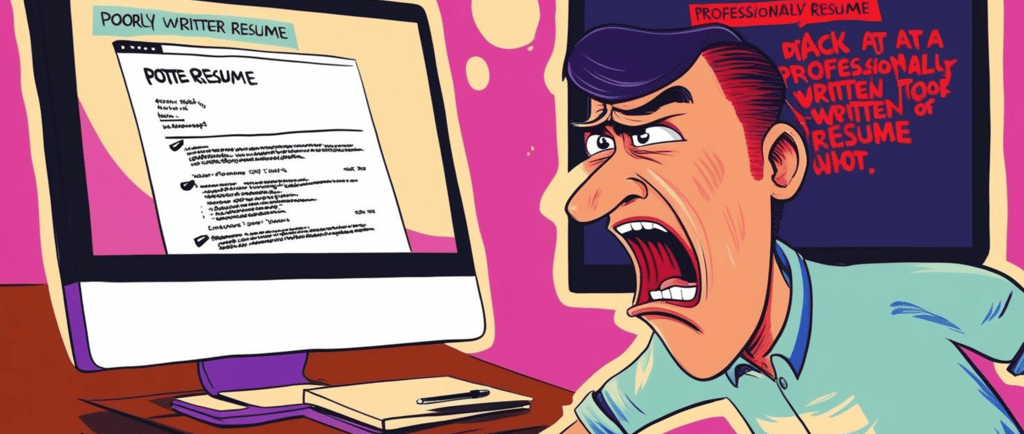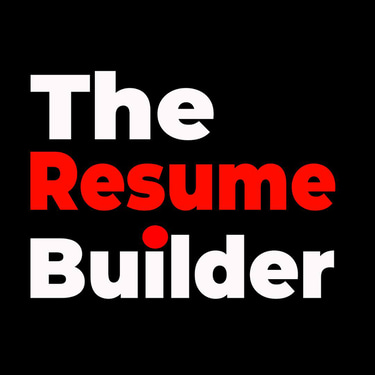The Hidden Risks of AI Generated Resumes
Discover why relying on AI for resume writing can risk your job prospects. Learn how human intervention ensures strategic storytelling, authenticity, and success in today’s competitive hirings.
Abhishek Kundu
4/26/20254 min read


In this AI age, automation has touched almost every aspect of our professional lives. One significant area where AI has made substantial inroads is in resume writing. Today, AI-powered tools like ChatGPT, Rezi and Zety can churn out professional-looking resumes in minutes. They offer convenience, efficiency and sometimes, a good first draft.
However, like every powerful tool, AI resumes come with their share of risks — particularly when it comes to employment prospects. No matter how advanced AI becomes, human intervention remains absolutely critical in strategically structuring your resume. Let’s delve into why depending solely on AI could jeopardize your career dreams, and how blending technology with human judgment is the key to success.
The Rise of AI in Resume Writing
Gone are the days when individuals had to spend endless hours crafting a resume from scratch. With AI-based resume builders, you can simply input a few details, select a template, and receive a polished document almost instantly. AI tools analyze industry trends, suggest keywords, and often tailor your resume to match job descriptions.
For instance, when Riya Mehra, a marketing professional from Pune, decided to apply for jobs abroad, she turned to an AI platform to rewrite her resume. In under 10 minutes, she had a sleek, keyword-optimized resume in hand. Initially, she was thrilled — until she started receiving either generic responses or no responses at all.
What went wrong?
The Pitfalls of Relying Solely on AI for Resumes
While AI offers speed and basic efficiency, it often lacks:
1. Personalization and Context Understanding
AI tools work based on algorithms. They can mirror formats, language styles, and match industry keywords, but they cannot fully grasp the nuances of your unique career journey.
Take the example of Pratik Joshi, an IT engineer from Bengaluru. His AI-generated resume stated he had "10+ years of cybersecurity expertise" because he briefly handled a security project early in his career. In reality, Pratik had only two years of part-time experience in cybersecurity. The AI system exaggerated his experience based on keyword density — and when a recruiter asked in-depth questions during an interview, Pratik struggled to defend his credentials, leading to a lost opportunity.
2. Overuse of Buzzwords
AI tools are designed to pick up trendy keywords to pass through Applicant Tracking Systems (ATS). While necessary to some extent, too many buzzwords make your resume sound robotic and hollow.
For example, Shruti Iyer, an HR professional from Chennai, used an AI tool to draft her resume. The output included phrases like “visionary thought leader," “dynamic go-getter," and "result-oriented synergy architect" — making her seem pretentious rather than credible. She realized that her original, simpler language resonated far better with recruiters.
3. Lack of Strategic Structuring
An effective resume tells a compelling story — of growth, value addition, and potential. AI lacks the ability to sequence information strategically to highlight your strongest points first.
Consider Arjun Deshmukh, a finance analyst from Mumbai, whose AI-generated resume buried his prestigious internship with Goldman Sachs under a list of minor college projects. Had a human reviewed and structured the resume, this significant achievement would have taken center stage, making a stronger impression.
4. Ethical and Accuracy Concerns
Some AI tools may inadvertently fabricate or exaggerate achievements, roles, or qualifications. Such misrepresentations, even if unintentional, can severely damage your credibility.
Moreover, many multinational firms have started using advanced detection software to check for AI-generated content in applications, fearing a lack of authenticity.
Why Human Intervention is Non-Negotiable
A well-crafted resume is a strategic marketing document, not just a timeline of jobs.
Here’s why human involvement is crucial, even if you use AI for initial drafts:
1. Strategic Storytelling
Only you (or an experienced human writer/editor) can decide how to weave your experiences into a compelling career story.
Think of it like this — an AI can build the skeleton, but you need to add the muscles, the skin, and the soul.
Example: Priya Raut, a graphic designer from Delhi, initially used AI to create a draft. But she collaborated with a career coach who helped her reposition her freelance projects to show leadership and innovation, rather than simply "gig work."
The result? A personalized resume that reflected not just what she did, but who she is as a professional.
2. Cultural and Role Relevance
Human professionals understand the specific expectations of industries and countries better than AI. For example, Indian resumes often prioritize academic performance more heavily than Western ones. Similarly, startups might prefer brevity and creativity over traditional formats.
Using AI alone could make your resume culturally tone-deaf.
3. Error Detection and Sensitivity
AI can miss subtle but critical issues like inconsistent formatting, inappropriate tone, or sensitive errors (like using “he/his” pronouns incorrectly in diverse environments).
Only a human review can polish your resume to perfection.
4. Customization for Different Applications
AI-generated resumes are often "one-size-fits-all." However, tailoring your resume for each job application is key to standing out.
Vikram Nair, a software developer from Hyderabad, saw his response rate jump by 60% once he began manually tweaking his resume to highlight project-specific skills for different employers.
Best Practices: How to Use AI and Human Expertise Together
Instead of treating AI as the final solution, think of it as a starting point. Here’s a strategic way to balance technology and human judgment:
Use AI for initial drafts: Save time by generating a basic version.
Review and restructure manually: Ensure important achievements are prioritized.
Tailor for the role: Adjust keywords and highlights based on each job description.
Personalize the language: Keep your voice authentic and avoid buzzword stuffing.
Proofread carefully: Look for typos, inaccuracies, or formatting issues AI might miss.
Get a second opinion: Work with a mentor, recruiter, or professional resume writer for feedback.
AI + Human = The Winning Combination
AI can be a brilliant assistant, but it cannot (and should not) replace human insight, empathy, and strategic thinking — especially when it comes to something as vital as your career.
Every individual is a story — full of aspirations, lessons, failures, triumphs, and growth. No AI, no matter how sophisticated, can capture that essence without your active involvement.
As the legendary Indian entrepreneur N. R. Narayana Murthy once said, "Growth is painful. Change is painful. But nothing is as painful as staying stuck somewhere you don't belong."
Don't let a machine script your professional story blindly. Let it assist you, but make sure the final script carries your unique voice, your spirit, and your dreams.
Final takeaway? -- Whatever you do with AI — remember: Human Intervention Is Not Optional. It’s Essential.
For ATS Resume Writing or Linkedin Profile Optimization, Call or Whatsapp +918981360947. Email- abhishek@atsresumewriting.in
Expert in
Professional Resume Writing Company in Kolkata, West Bengal
Professional Resume Writer in Kolkata, West Bengal
ATS Resume Writing in Kolkata, West Bengal
GET IN TOUCH
theresumebuilderindia@gmail.com
+91 89813 60947
© 2015. All rights reserved by Abhishek Kundu Resume Writing Co.
abhishek@atsresumewriting.in
